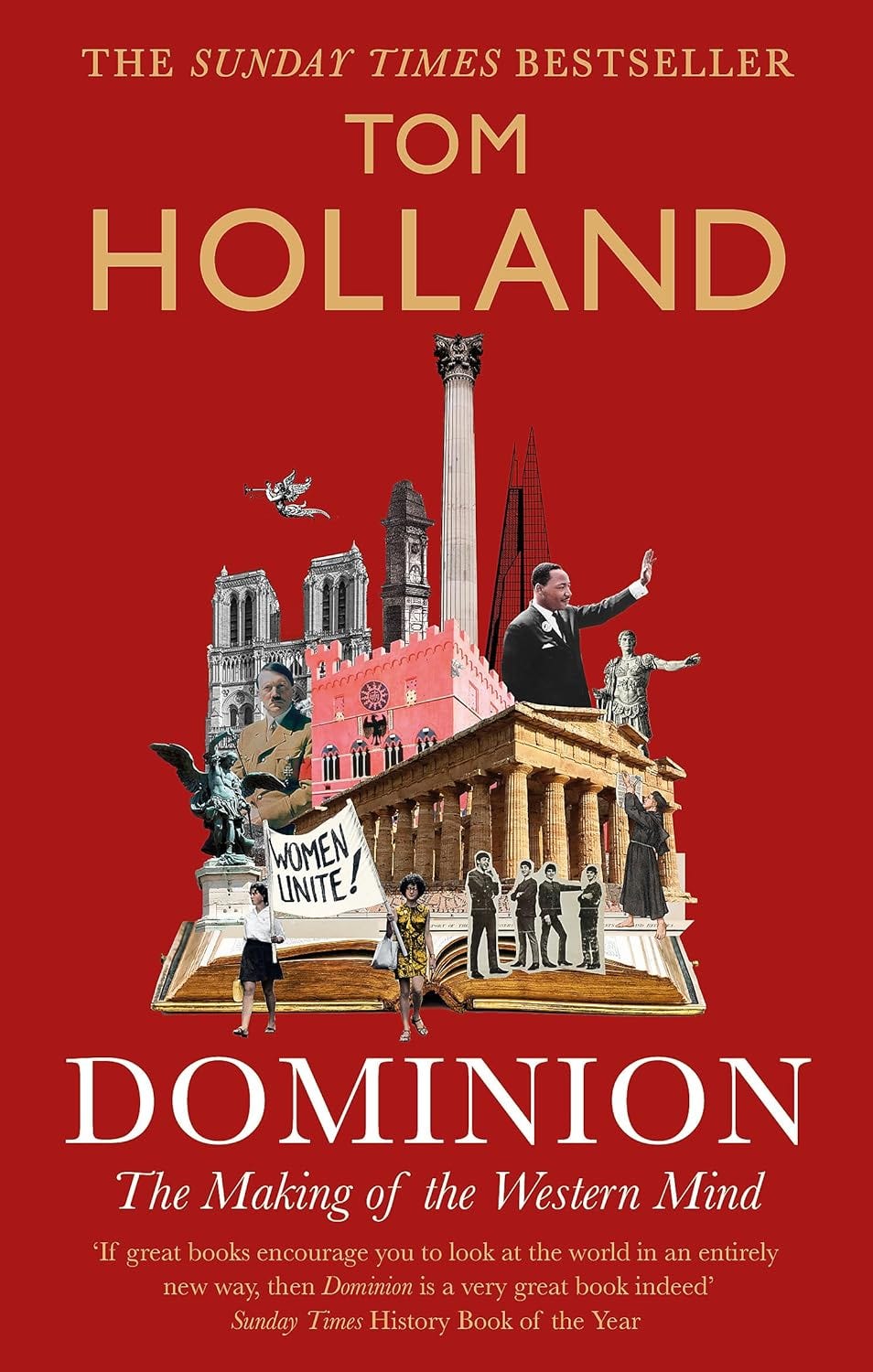Hello and welcome to my inaugural post on Substack!
This post should orientate you on my general thoughts around Christian ethics and the impact this has had on the world. It should be a good starting place before moving onto subsequent articles. I should caveat that this current train of thought primarily focuses on Western culture, however, I will write about my experiences with Eastern cultures in due course.
It seems to me that almost everyone who has an opinion about Christianity, ethics, and Western culture is talking about Tom Holland’s book, Dominion: The Making of the Western Mind, so I think his thesis is a good place to start.
He began his research like any other atheist historian, but his conclusion has had such a profound effect that he is not only reconsidering his own disbelief in God,1 but has caused various New Atheists to alter their positions as well.2 If you haven’t read him yet, you should.
His idea is simple. The Roman empire looked much like any other empire, and with that it carried a set of cultural assumptions which most people took for granted at that time. However, this all changed when Jesus of Nazareth began walking around first-century Palestine. His teachings, actions, and subsequent following provided a direct disruption to the cultural norms laid out by Rome, and we are continuing to live in the reverberations of this disruption today.
If you imagine the clash of two worldviews creating a ripple effect through history, his book tracks how these ripples continue to affect us in our post-modern secular society.
For the purposes of this post, I am going to situate his main thesis claim within the realm of Christian theology. I will refer to this clash as a war between Kingdom Culture, that is, the culture that was ushered in by Jesus and his followers, and Empire Culture, that is, the status quo that the Romans took for granted.
One important thing to note is that this is not a ‘world’ versus ‘church’ divide. The church can sometimes look a lot like Empire, and people in the secular world who do not follow Jesus can sometimes aspire to Kingdom values, even if they do not realise it.
In Empire culture, certain norms go without saying. For example, it is assumed that bigger is always better, and grandiosity must always be celebrated. In other words, might is right. It is also assumed that some people are better than others, and that it is natural and right for certain privileges to be reserved only for the elite. So-called defects, such as poverty, disability, illness, general weakness, must be exiled from the community by either pushing them to the margins or dispatching them completely. Those who are strong, beautiful and healthy must be celebrated and given special status. On the whole, individual humans have no unique value in their own right, but rather their value is determined by how useful they are to the Empire.
By contrast, when Jesus enters the world stage, he is preaching the exact opposite of what is assumed. Although much of what he says is now taken for granted in the West, it is important to realise that our modern ethical values did not come out of a vacuum. Rather, they gradually evolved from somewhere, and Holland argues that concepts such as Human Rights come directly from the teachings of this peculiar first-century Rabbi.3 Nowhere else in human history have these ideas been cultivated, and if you travel to the few remaining pre-Christian cultures in the world today, you will find that they are startlingly alien.
Specifically, there are notions surrounding weakness, disability, women and poverty that had never been preached before. Jesus and his followers argued that ‘the first will be last and the last shall be first,’4 that those who are usually excluded by society are ‘blessed’ in God’s Kingdom,5 that the weak have a purchase over the strong,6 that virtue must be practised in secret,7 that true strength is found in humility, that good leadership is found in service rather than dominion,8 and, perhaps most controversially, that society’s outcasts are representatives of the King.9
To put it simply, Jesus and his followers ushered in a new Kingdom, one where priority is given to the least, the last and the lost, and this flies in the face of the dominating culture of Empire. In doing so, they literally turned the world upside down.
The problem with today is that many churches will have an intermingling of Kingdom Culture and Empire Culture. One church might be exceptionally good at feeding the poor and providing shelter to the homeless, and yet they still might have the concept of ‘special people’ in the way they elevate those in ministry. Another church might spend a lot of effort in ensuring there really is a priesthood of all believers, but they might neglect the most vulnerable in their midst. Nothing is clear cut.
Nevertheless, it is important that the church clarifies her metrics for success.
We live in a cultural moment where the church appears to be on the back foot, and this is largely because of public scandals and failures in leadership. I will argue in future posts that when the secular world condemns us, it does so on Kingdom terms. When we fail those who are most vulnerable, we are failing by the standards laid out for us by our own King.
By contrast, when our platforms become influential and our brands become omnipresent, we might not be succeeding by Kingdom standards but rather those of Empire. We might be telling ourselves that bigger is better because more influence equates to more salvations, but we have to ask ourselves, are we going about Kingdom-building in the ways that were laid out for us by our king?
We as Christians have to choose whether we want to continue to uphold the standards of King Jesus, or whether we slide back into Empire ways of thinking. I will continue this reflection in future posts.
Until next time,
S
Justin Brierly reports that the project led to Holland attending church, which has led him to some interesting questions about faith.
For example, the famous New Atheist, Ayaan Hirsi Ali recently converted to Christianity, and she wrote an article that went viral. Note also, how the most famous New Atheist of all, Richard Dawkins recently declared himself to be a ‘Cultural Christian’ over Easter on LBC, with a strikingly different tone to the one he adopted in the early 2010s.
I appreciate that this is a very crude oversimplification. I will tease out some of the nuances of this in future posts, especially with regards to Jesus’ relationship with Genesis and the rest of the Hebrew Bible.
Mark 9:35; c.f. Matthew 20:16
Matthew 5:3-11
1 Corinthians 1:27-29
Matthew 6:1-8
Mark 10:42-45
Matthew 25:31-45






Some further clarifications and definitions can be found here: https://open.substack.com/pub/sarahcoppin/p/jesus-vs-rome?r=2le96v&utm_medium=ios
Very rich and interesting read. Kingdom culture vs Empire culture.